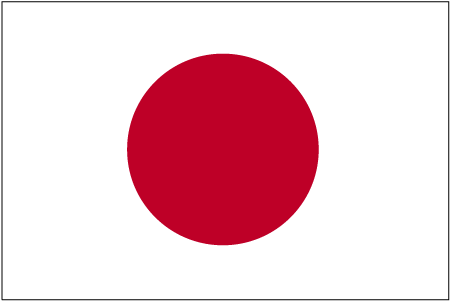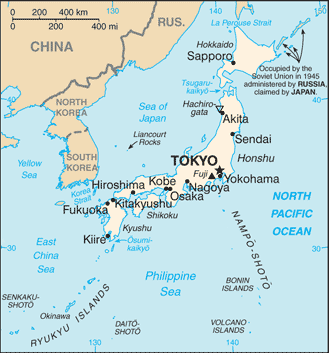Investing in Japan


In the years following World War II, government-industry cooperation, a strong work ethic, mastery of high technology, and a comparatively small defense allocation (1% of GDP) helped Japan develop a technologically advanced economy. Two notable characteristics of the post-war economy were the close interlocking structures of manufacturers, suppliers, and distributors, known as keiretsu, and the guarantee of lifetime employment for a substantial portion of the urban labor force. Both features are now eroding under the dual pressures of global competition and domestic demographic change. Japan's industrial sector is heavily dependent on imported raw materials and fuels. A tiny agricultural sector is highly subsidized and protected, with crop yields among the highest in the world. Usually self sufficient in rice, Japan imports about 60% of its food on a caloric basis. Japan maintains one of the world's largest fishing fleets and accounts for nearly 15% of the global catch. For three decades, overall real economic growth had been spectacular - a 10% average in the 1960s, a 5% average in the 1970s, and a 4% average in the 1980s. Growth slowed markedly in the 1990s, averaging just 1.7%, largely because of the after effects of inefficient investment and an asset price bubble in the late 1980s that required a protracted period of time for firms to reduce excess debt, capital, and labor. Measured on a purchasing power parity (PPP) basis that adjusts for price differences, Japan in 2010 stood as the third-largest economy in the world after China, which surpassed Japan in 2001. The Japanese financial sector was not heavily exposed to sub-prime mortgages or their derivative instruments and weathered the initial effect of the recent global credit crunch, but a sharp downturn in business investment and global demand for Japan's exports in late 2008 pushed Japan further into recession. Government stimulus spending helped the economy recover in late 2009 and 2010. Prime Minister KAN's government has proposed opening the agricultural and services sectors to greater foreign competition and boosting exports through free-trade agreements, but debate continues on restructuring the economy and funding new stimulus programs in the face of a tight fiscal situation. Japan's huge government debt, which exceeds 200% of GDP, persistent deflation, reliance on exports to drive growth, and an aging and shrinking population are major long-term challenges for the economy. A 9.0-magnitude earthquake and an ensuing tsunami devastated the northeast coast of Honshu Island on 11 March 2011, washing away buildings and infrastructure as much as 6 miles inland, killing thousands, severely damaging several nuclear power plants, displacing and leaving homeless more than 320,000 people, and leaving a million households without running water. Radiation leaks at the Fukushima Daiichai nuclear power plant prompted mass evacuations and the declaration of a no-fly zone - initially for people and planes within 12.5 miles of the plant but later expanded to 19 miles. Radioactive iodine-131 has been found as far as 100 miles from the plant in samples of water, milk, fish, beef, and certain vegetables, at levels that make these foods unfit for consumption and create uncertainty regarding possible long-term contamination of the area. Energy-cutting efforts by electric companies and train lines slowed the pace of business throughout Honshu Island, and the stock market gyrated, dropping as much as 10% in a single day. In order to stabilize financial markets and retard appreciation of the yen, the Bank of Japan injected more than $325 billion in yen into the economy. Estimates of the direct costs of the damage - rebuilding homes and factories - range from $235 billion to $310 billion. Some economic forecasters, who previously had anticipated slower growth for Japan in 2011, now believe GDP may decline as much as 1% for the year.
Bank of Japan - http://www.boj.or.jp/
Osaka Securities Exchange - http://www.ose.or.jp/
Tokyo Stock Exchange - http://www.tse.or.jp/
Inpex (TYO: 1605) - http://www.inpexhd.co.jp/
Toshiba - http://www.toshiba.co.jp/
Learn more:
Back to Country Investing



